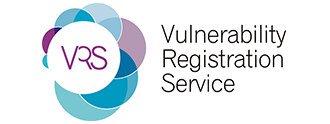MOVING FROM LIP SERVICE TO ACTION
TREATING VULNERABLE CUSTOMERS FAIRLY
Vulnerability Registration Service
Members Only
The media has recently been flooded with government and royal scandals and, while the fuel crisis has received some airtime, the potential impact on millions of households has not received the publicity it merits. The decision of to ‘Eat or Heat’ is a very real threat to many. The negative impact on household expenditure a risk to us all.
It is more important than ever to be able to identify who our vulnerable customers are and give them the appropriate level of support. The Vulnerability Registration Service (VRS) recently published a report highlighting the need for businesses to, not just acknowledge that vulnerability is an issue, but start to take action to address it. The full report can be viewed on the VRS website.
The figures are already alarming – a dramatic increase in the cost of living will only exacerbate the situation so now is the time to act. Delays blamed on resource, data protection challenges or not acknowledging that a customer base has an element of vulnerability should no longer be an option.
Over a third of the population already deem themselves to be in vulnerable circumstances and, of those, 41% feel unfairly treated by organisations with 15% finding it difficult to communicate. Some of these issues can start to be addressed through tailored and efficient customer service but it is essential to be able to establish who those customers are in order to do so. Data sharing is an essential component in vulnerability identification. Society has made big strides in recognising the impact mental health can have on all aspects of people’s lives. 25% of the people VRS surveyed had experienced mental health issues in the last twelve months, identifying individuals who are affected and treating them appropriately is a major element in the quest to support vulnerable customers.
Some of the findings in the report are surprising – typically, younger people (potentially those without a weighty credit history) identify as vulnerable. Those who would be classed as living in comfortable circumstances also form a large minority – possibly as a result of unexpected issues arising from the pandemic who, again, will be affected by rising household bills.
VRS obtains data from non-traditional sources providing an extra layer of insight for its customers. This allows companies to overlay the information it obtains through credit reports, affordability models and fraud prevention services and determine which customers may need to be referred out of the customer journey. VRS holds Court of Protection data obtained from local authorities and solicitors whereby the individual often should not be obtaining credit and is not responsible for their own financial affairs; referrals from charities supporting a range of individuals suffering from gambling addiction to financial abuse including the victims of loan sharks.
In addition, individuals can self-register or service providers who are clients of VRS can share information about their customers where there is a legal basis to do so.
The VRS database is accessible directly to VRS clients or through solutions providers we are working with.
























